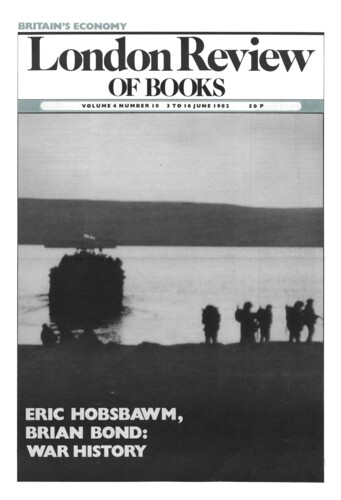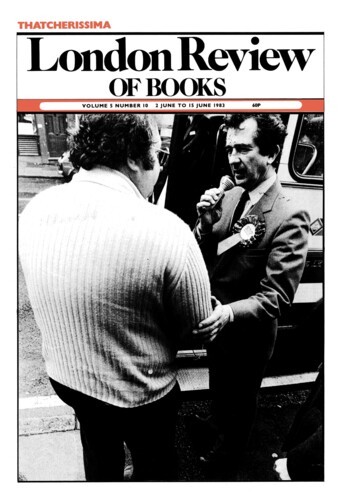Can Maynard Keynes do it?
Peter Clarke, 3 June 1982
‘The question what Keynes would be advocating today is, of course, a nonsense question.’ So Lord Kahn warned us in a brilliant lecture in 1974, invoking Keynes’s propensity – ‘apart from the fact that he would be 91 years old’ – to develop new answers for new questions, rather than to make a fetish of consistency. The impact of Keynes’s thought has nonetheless suffered many attempts to encapsulate it within a cut-and-dried formula. In the 1950s and 1960s it was usually the redeemer theory, whereby Keynes was held to have supplied us with a box of tricks uniquely guaranteed to ensure permanent prosperity. When the long post-war boom, of which he was allegedly the ‘onlie begetter’, was succeeded in the 1970s by the disconcerting phenomenon of stagflation, the devil theory caught on, whereby Keynes was in turn arraigned as the architect of our misfortunes. A further variant was to say God is Dead, suggesting that the Keynesian revolution was a comprehensively over-inflated promise of general salvation from what turned out to be the peculiar and transient difficulties of one offshore island at an awkward corner in its history.





